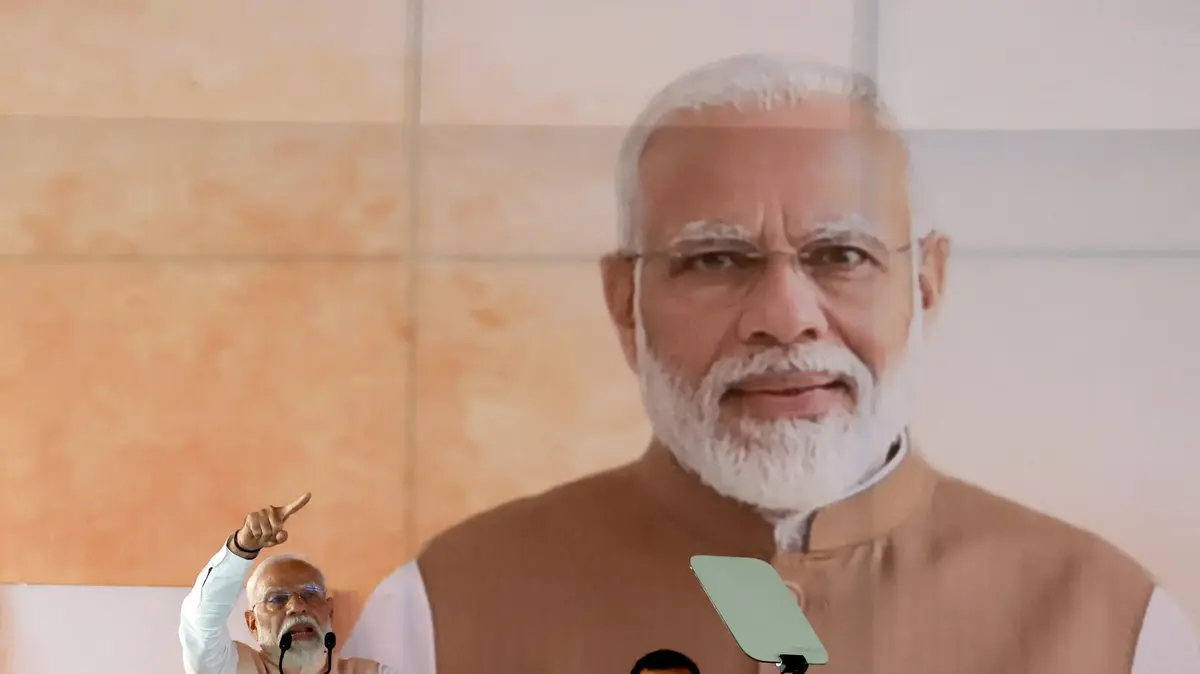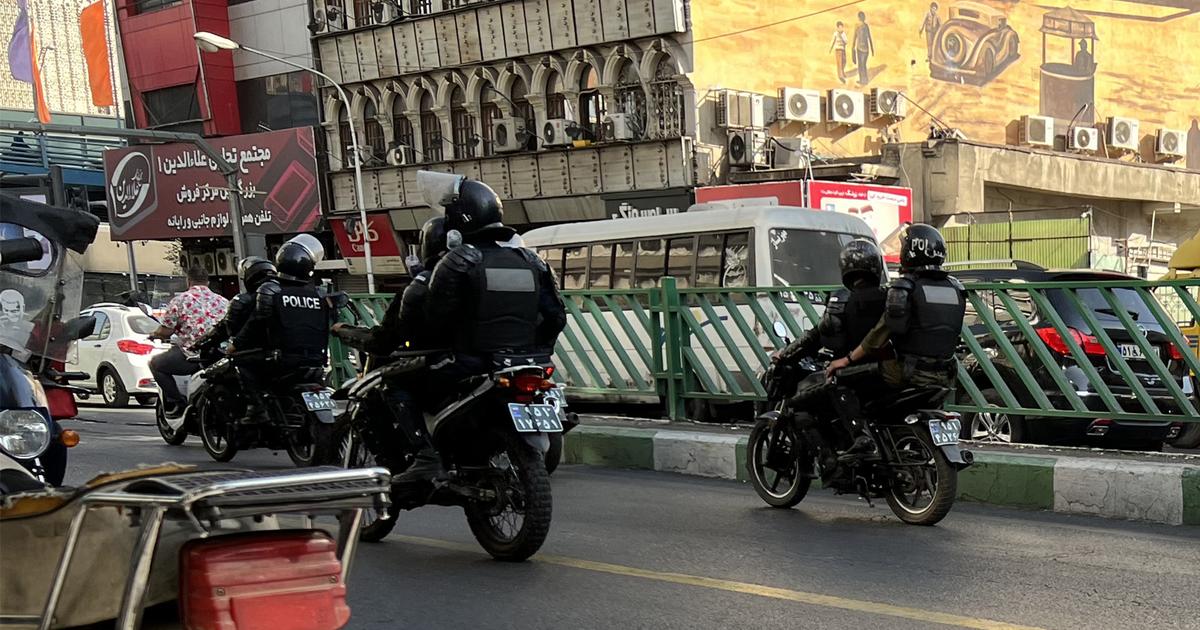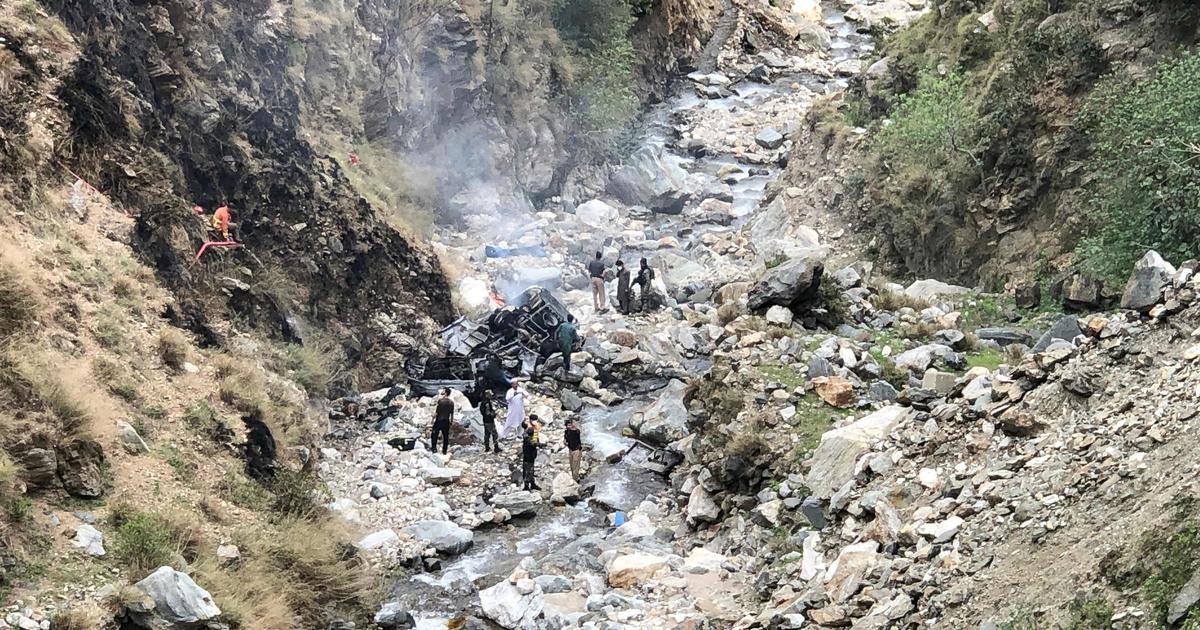Icon: enlarge
After a woman was gang raped on a country road in Pakistan, many protested sexual violence in Karachi in September 2020
Photo:
AKHTAR SOOMRO / REUTERS
In Pakistan, it is often two fingers that decide whether a court will believe a woman who has been raped.
Whether a rapist has to fear the consequences.
The so-called two-finger test, also known as the "virginity test", is common practice in the country for the medical assessment of suspected rape victims.
Among other things, it is examined to what extent the hymen, called hymen, is intact.
It is believed that the result provides information about the extent to which the woman is sexually active.
Which is just as wrong and without a scientific basis as the conclusion that is then drawn:
Often times, women are classified as immoral, virtuous after the test, and the abuse these women reported as consensual sex.
"A humiliating practice to bring the victim into suspicion rather than focus on the accused."
Judge Ayesha Malik at the Supreme Court in Lahore
In early January, the Lahore Supreme Court banned these tests in the most populous province of Punjab.
Lahore High Court judge Ayesha Malik said the tests were "demeaning" and had "no forensic value."
"It is a humiliating practice that is used to bring suspicion to the victim instead of focusing on the accused and the sexual violence incident," she said.
Activists, psychologists, lawyers and sociologists had previously called for an end to the tests in two petitions.
They celebrated the ruling as an important step for women in Pakistan.
Pakistani human rights minister Shireen Mazari wrote on Twitter after the verdict that the decision was a "landmark judgment" against a "degrading and absurd" practice.
The lawyer Sahar Zareen Bandial has defended one of the applicants in court.
She too thinks the judgment is important.
In an interview with SPIEGEL, however, she warns that violence against women is still part of everyday life in her country.
SPIEGEL
: Ms. Bandial, what does the ban on the two-finger test mean for women in Pakistan?
Sahar Bandial:
This judgment states in very clear terms that these tests are neither lawful nor constitutional.
They violate the dignity of rape victims, the right to privacy, the right to be equal before the law.
Kind of character assassination.
Whether or not there was rape has nothing to do with how much sex a woman has had in her life.
Every plaintiff deserves the same protection and respect for the law, it has nothing to do with virtue.
SPIEGEL:
Will the tests be banned across the country soon?
Bandial
: It is very important to say: this practice has absolutely no basis in Pakistani law.
It is a holdover from colonial times that continues to be operated unquestionably.
In court we cited examples from other Islamic countries in Southeast Asia where these tests were banned.
Bangladesh, for example, banned the test in 2018, as did Afghanistan and Malaysia.
We have also argued with the laws in the UK and the US, with recommendations from the World Health Organization.
According to the United Nations, the tests have no clinical or scientific basis.
SPIEGEL
: How did the people in Pakistan view the judgment?
Bandial
: Afterwards, many women
shared
their experiences on social media.
How traumatic the test was for her, how terribly inhuman.
Even doctors who had already performed such tests reported that they found the practice to be unacceptable.
Overall, there was not much public opposition, which is good news.
SPIEGEL
: Just last fall, a woman was raped by a group of men on a country road - in front of their two children.
A 14-year-old girl was recently kidnapped, forcibly converted to Islam and forcibly married in Karachi.
How safe is life for women in Pakistan?
Bandial
: You know, I'm 35 years old.
I feel much safer today than I did ten years ago in this country.
Fifteen years ago, a Pakistani court might have decided differently about the two-finger tests.
Women have become more visible and louder in society.
But the answer to the question of how protected are the bodies of women in Pakistan remains depressing.
Child marriage is a huge problem, domestic violence, acid attacks.
Girls are denied education, women are denied their inheritance.
There are laws protecting women's rights, but they are often not applied in practice.
In practice, the male perpetrators are protected.
SPIEGEL
: Another example of these patriarchal structures: Only a fraction of rape cases in Pakistan even end up in court, and perpetrators are rarely called to account.
Bandial
: Often there is no real investigation.
Evidence is not saved.
DNA analysis is skipped during medical examinations.
Many women - including their own families - are being pressured to drop their charges.
Most women do not even dare to speak about what happened to them.
They know: rape is a social taboo, and the trials are very stressful for the victims.
You have seen that the tables are often turned - and at the end of the investigation it is the woman who has to justify herself instead of the perpetrator.
So that something fundamentally changes in the perpetrator-victim imbalance, the mindset of judges, investigators, the authorities must change.
This requires training - and we women must continue to be loud for our rights.
As gratifying as the court ruling is now, much remains to be done to ensure that women in Pakistan are safe.
Icon: The mirror
This contribution is part of the Global Society project
What is the Global Society project? Up arrow Down arrow
Under the title Global Society, reporters from
Asia, Africa, Latin America and Europe
report on injustices in a globalized world, socio-political challenges and sustainable development.
The reports, analyzes, photo series, videos and podcasts appear in the international section of SPIEGEL.
The project is long-term and will be supported by the Bill & Melinda Gates Foundation (BMGF) for three years.
A detailed FAQ with questions and answers about the project can be found here.
What does the funding look like in concrete terms? Up arrow Down arrow
The Bill & Melinda Gates Foundation (BMGF) is supporting the project for three years with a total of around 2.3 million euros.
Is the journalistic content independent of the foundation? Up arrow Down arrow
Yes.
The editorial content is created without the influence of the Gates Foundation.
Do other media have similar projects? Up arrow Down arrow
Yes.
Major European media outlets such as "The Guardian" and "El País" have set up similar sections on their news sites with "Global Development" and "Planeta Futuro" with the support of the Gates Foundation.
Have there already been similar projects at SPIEGEL? Up arrow Down arrow
In recent years, SPIEGEL has already implemented two projects with the European Journalism Center (EJC) and the support of the Bill & Melinda Gates Foundation: The "Expedition The Day After Tomorrow" on global sustainability goals and the journalistic refugee project "The New Arrivals", as part of this several award-winning multimedia reports on the topics of migration and flight have emerged.
Where can I find all publications on Global Society? Up arrow Down arrow
The pieces can be found at SPIEGEL on the topic Global Society.









